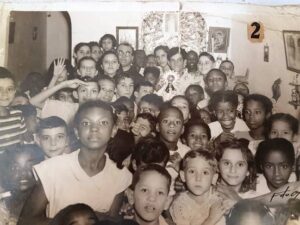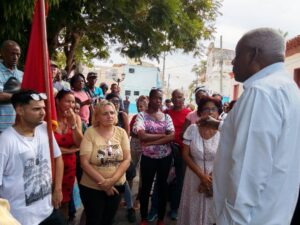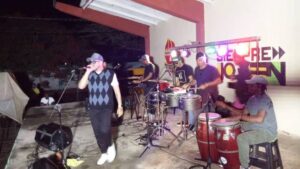Fatima dresses up at Teatro Sauto (+ audio and photos).
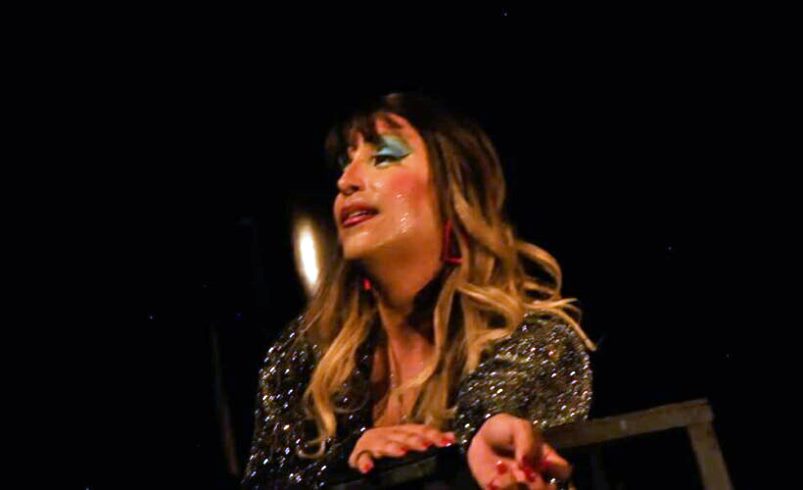
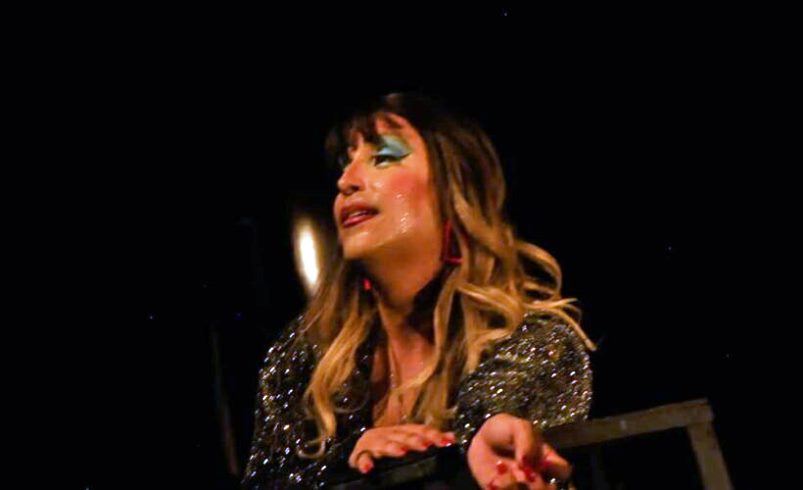
No two stagings are the same, even when they share the same script, scenographic design, actors and director. Theatrical performances always go through the filter of the audience’s subjectivity and, after being interpreted by the audience, even if it is not their first encounter with the play, the result will be different.
See also: https://cubactores.com/noticias/5-razones-para-no-perderte-la-obra-fatima-y-el-parque-de-la-fraternidad/8886/
Fátima y el Parque de la Fraternidad, the version of the homonymous story by Miguel Barnet and homage to Jorge Perugorría’s 2015 film delivery, which was brought to the stage of Sauto Theater this weekend, is a reliable example of how much the audience’s interpretations, reactions and interactions determine the conception, work on the boards and final product of a show, especially because of the proximity and empathy achieved by Ray Cruz, actor and one of the directors of the staging, with the spectators.
«I think it is fundamental because, when the part in which the public intervenes takes place, I realize as an actor and as a character that I can do whatever I want with the audience, I can achieve anything with it.
«On Friday, for example, unforeseen things happened but the audience didn’t even notice, and that’s because they are completely immersed in the play. Realizing that determines how confidently I take on the character.
«Precisely what motivates the change, the growth of Fatima is the audience; each show is totally different and it depends a lot on who comes to see the play. There are audiences that are more elitist, others are more of the people, but I work for everyone».
In the reduced space of the stage of the coliseum of Matanzas, the script stands out, without denying improvisations that enrich the performance from the direct intervention of the audience, it addresses complex issues of society which, despite its validity, continue to be taboo, such as transformism, prostitution, emigration, prejudice.
See also: http://www.lajiribilla.cu/cubana-no-cubanisima/
He also highlights the use of lights and music, fundamental to achieve another of the objectives that the work fulfills very well: to defend the Cuban identity and identity.
«We want to talk not only about people who are discriminated against, but also about Cubanness. It hurts me when people leave our country, for whatever conditions and reasons.
«I’m interested in confronting that in the play and it gives it a very big weight when you contextualize it right now with emigration; our neighbors, our friends, family are leaving. We are being left alone, as Fatima says, and that worries me a lot as an actor and as a Cuban.»
It didn’t matter during the first presentation on Friday when a phase fell due to thunderstorms that finally served as a soundtrack to the performance.
Ray Cruz’s impressive stage performance did not allow the audience to notice the absence of certain approaches through lighting and sound. With equal demonstration of versatility, the same that distinguishes his work on television, he took on the Saturday and Sunday shows.
Fátima y el parque de la Fraternidad tells the story of Manolito, a young Havana boy who has suffered all kinds of prejudices because he is a homosexual, transvestite and prostitute.
The version of the play, premiered on August 12 this year at the Llauradó theater in the Cuban capital, delves deeper into the interior of this man trapped in the body of a woman who lives all kinds of affronts, persecutions and problems to expose and propose a reflection in favor of inclusion, respect for human individualities, an invitation to try to be happy as we are.
«I have a very hard time, in the best sense of the word. In this staging we go more to the essence of a character that right now is much darker even than what is written by Barnet».
In the play, in which Claudia Zaldívar makes her directorial debut, Ray Cruz deploys all the skills that her vast acting repertoire brings her to take us from pain to joy, from laughter to tears, until it is no longer the actor who is in front of us and the queen of Fraternity Park appears, without losing her character for a second.
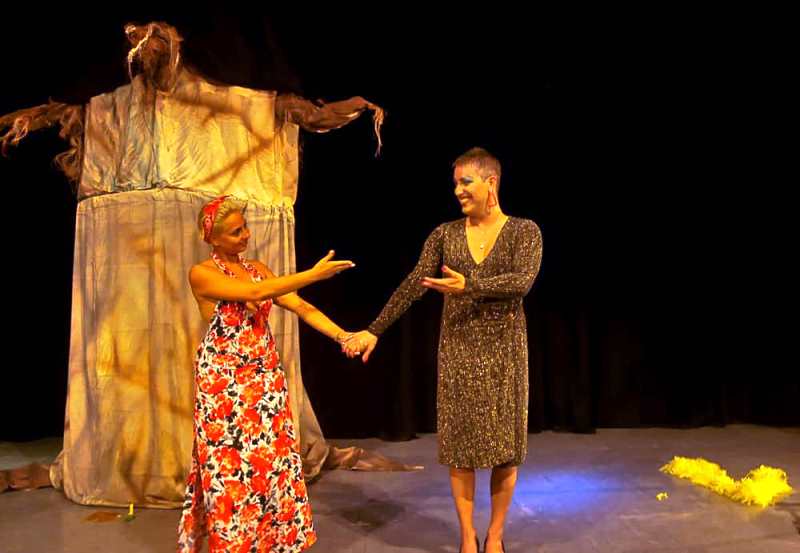
«It had been about 15 or 20 days since I had done the play and I knew, without even setting foot on the stage, that I would have a hard time with the show because I was so excited before it started.
«She’s a volcano all the time. I feel that right now I dominate her in many things, but she dominates me more. Up there I don’t even know half the things that happen when I’m playing her. That makes the play take on another dimension.
The scenic design, the musical selection and the makeup also deserve praise. It is at that point of no return in which you feel that your inner self is fragmented with the sufferings of a human being (man-woman, whatever) when Fatima and the Fraternity Park reaches its climax.
And, in those walks Fatima changes her face for that of any discriminated, marginalized, biased person and adopts their names, their memories, their lives. Fatima is her and many people who have felt or feel the social pressure on their heads. For each and every one of them, as we hear at the end of the play, Fatima does not give up…Fatima is immortal.
Photos: Ramón Pacheco
…ONLINE AUDIO
Written by Jessica Mesa Duarte.


